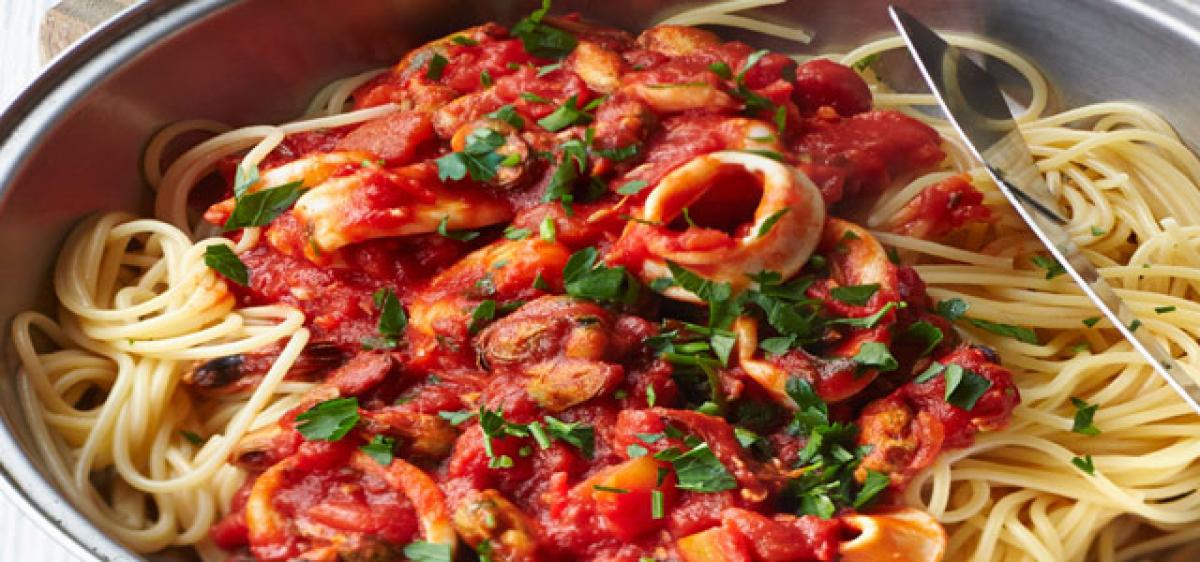Noodles can now be a healthier option

Asians for ages have been in love with noodles -- for the fun, taste and a \"full-up feeling\" which makes it a complete meal in itself. From being an integral part of our dinner/lunch, it started occupying an important space in our kitchen as a snack, in the form of instant noodles.
Asians for ages have been in love with noodles -- for the fun, taste and a "full-up feeling" which makes it a complete meal in itself. From being an integral part of our dinner/lunch, it started occupying an important space in our kitchen as a snack, in the form of instant noodles.
Instant, or generally pre-cooked, noodles provided respite by helping us prepare a meal in just two minutes. From backpackers to hikers, from hostellers to housewives, everyone loved them. But the recent controversy put all noodles under the scanner and also made them go off the kitchen shelves of many. That left an indelible mark in the minds of many Indian consumers and a question: Are noodles actually healthy?
It's time we take the onus on ourselves to find out if the product we consume and feed to our dear ones is actually healthy. Most brands present in India have noodles made of refined wheat flour/maida which has high content of fats, calories, sodium and preservatives.
Instant noodles contain saturated fats which, if consumed excessively or regularly, can raise the cholesterol level in the blood, which in turn can increase the risk of heart disease and Type 2 diabetes.
Although instant noodles are convenient and delicious, they bring with them higher risks of indigestion due to the high maida (flour) content and metabolic syndrome owing to the high sodium and unhealthy saturated fat and glycemic loads as has been proved through studies conducted at Harvard.
As a matter of fact, a doctor at a leading hospital chain has said: "Maida-based instant noodles are loaded with preservatives and are nothing but a source of empty calories ripped of all nutrition. Excessive consumption may lead to obesity."
It's time we start switching to healthier products that are made out of healthier ingredients -- in turn contributing to better health and nutrition. For instance, instant and maida noodles can be replaced with spaghetti, a noodle made of durum wheat semolina (sooji), which means it has higher protein content and offers better nutrition and health in every serve.
Belonging to the Mediterranean lands, which are known to be resource hubs for the healthiest food items -- olive oil, wine, pasta and the like, spaghetti in no measure misses the marks of good health. It has about 35 per cent more protein than instant noodles and contains no trans-fats and cholesterol.
So, you can binge on as much noodles as you want without worrying about the increase in weight/fat intake. Spaghetti, as a noodle, offers the ideal experience not just because of its better nutritional content but also due to its smooth texture.
Spaghetti is made up of only durum wheat semolina which is mixed with fresh water and then dried to give noodle shape, which means it undergoes no refining process and has no addition of additives/preservatives imparting it a smooth texture.
Also, the noodle needs no addition of oil at the time of boiling as it does not stick, which, in turn, reduces the overall fat content of a dish made with spaghetti. It is an ideal noodle for preparing any recipe -- whether as Chinese hakka, or with tomato sauce and veggies.
Fibre and protein are a must for everyone in day-to-day life. Struggling to feed their children nutritious and healthy food which is rich in fibre and protein is the daily story of every mother. This is what makes spaghetti every mother's delight: it is time they serve the delicious noodles with all the vegetable their kids refuse to eat without worrying about their health and wellness.
By: By Rajneesh Bhasin








